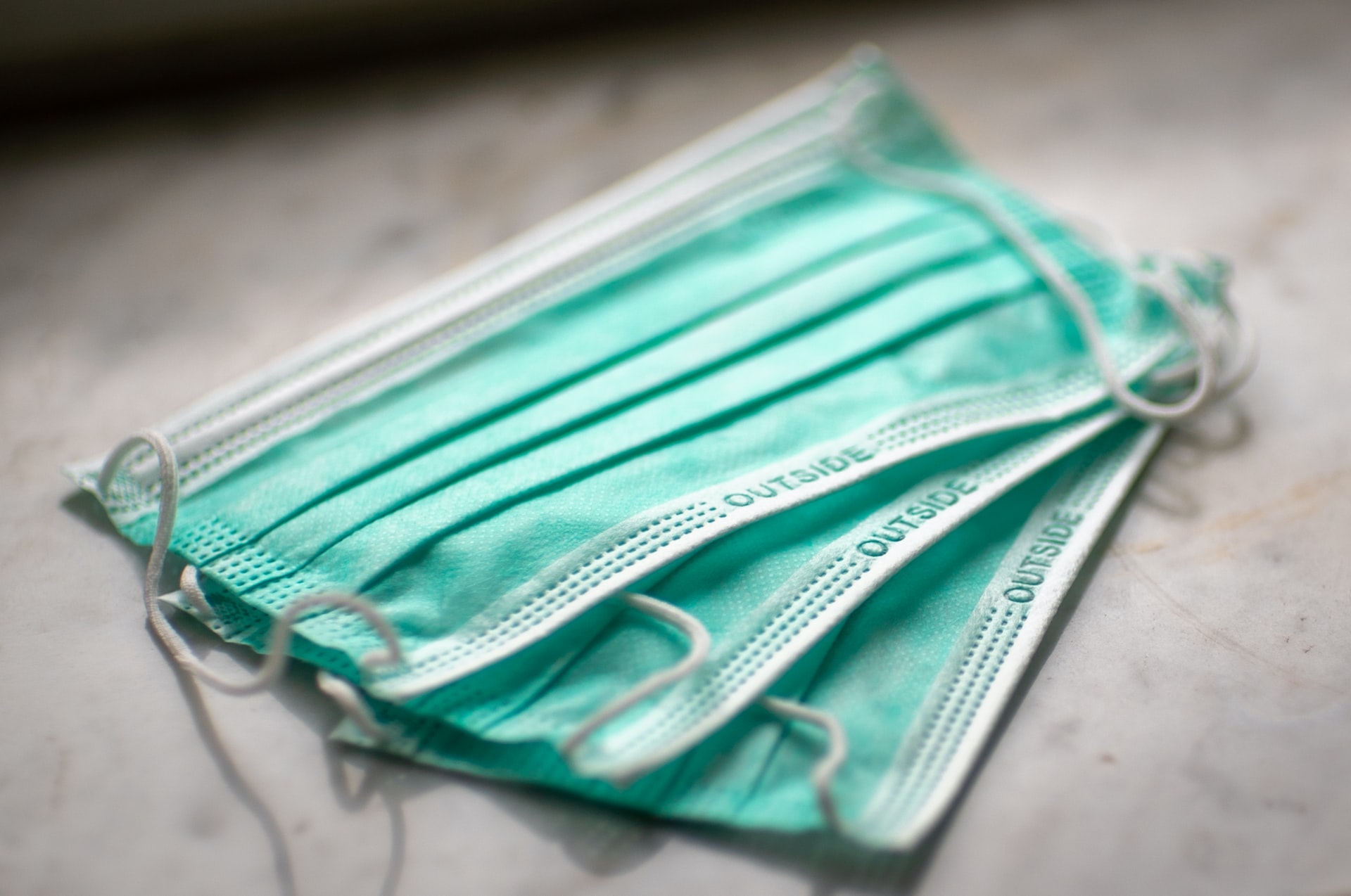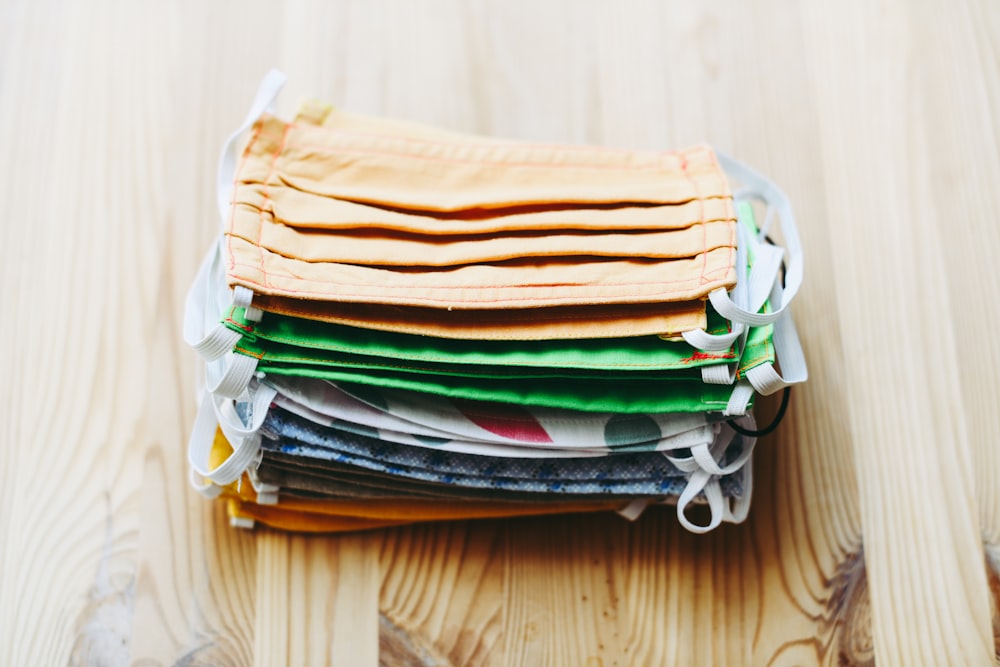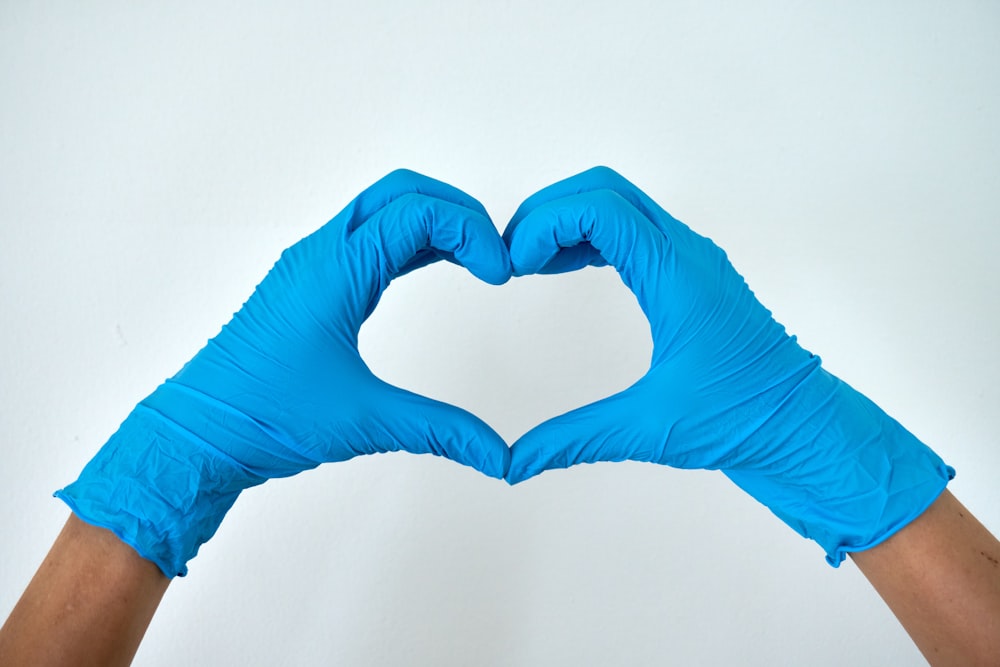Planet-Friendly PPE: Startup Makes Biodegradable Face Mask

Since the COVID-19 pandemic started last year, the world has become even more dependent on personal protective equipment. Before the pandemic, PPE was a thing of hospitals, dental offices, veterinarian offices, and laboratories. Now, they’re everywhere, and I think we’ve all seen gloves or a face mask on the ground in a parking lot. Luckily, companies are looking for solutions, including biodegradable face masks and reusable gloves.
Environmental Impact of PPE
Face masks have been around since the late nineteenth century, and single-use started becoming popular in the 1930’s. Rubber gloves have been used since the late nineteenth century, too. Over one hundred years of use, and you can imagine how many masks and pairs of gloves have been thrown into the trash given their many uses in various fields. Those levels have just increased since the pandemic began.

So far, it’s estimated the world uses 129 billion facemasks per month, along with 65 billion gloves. In some areas, that can be up to six times more than before the pandemic, such as in Wuhan, China. That’s just the tip of the iceberg on waste issues in response to the pandemic, but hopefully solutions will be widely available soon.
Biodegradable Face Masks
Geochanvre is a company based in France making face masks out of hemp. Specifically, there is a piece of hemp for filtering lined with corn starch. It even has a recyclable band. According to the company, it is efficient in filtering 98% of particles. So far, they’ve sold over 1.5 million masks, and you can even buy kits to assemble them yourself or just the hemp lining. You can buy them in packs of 50 or more, so you can team up with friends or family to buy in bulk
These masks are 100% biodegradable, with no plastics in them. Not only do they fully decompose, but they do it quickly: hemp decomposes in about six months with no toxic effects, and can be recycled. Plastic can take hundreds of years, and while it can be recycled, also release harmful chemicals when they do break down.

Geochanvre isn’t the only company making biodegradable face masks, though. Change Plastic for Good has created a plastic-additive that is biodegradable and is using it to make masks. The additive, BDP, is added to the plastic during manufacturing. It attracts microbes to the plastic when its in a landfill, and then those microbes make it water-loving, attracting more microbes to help break it down. You can buy them in sets of three boxes at a time.
Luckily, while these biodegradable masks are harder to get, you can still use the trusty reusable mask made of fabric.
Recyclable Gloves
The ReGlove system makes gloves out of polyvinyl alcohol, or PVA, a polymer that is recyclable. Within the system, they are dissolved, sterilized, and remolded all within a single machine. The dissolution of the material is important: liquids are easier to sterilize by autoclaving, a sterilization machine common in all labs.
The goal is to create a circular system to help decrease medical waste from gloves. Not only will it help reduce waste, it will also decrease transportation of new gloves and medical waste, which will help decrease emissions. Currently, the system is in the proof-of concept phase, meaning it’s not available yet, but they are working on making it more efficient.

In the meantime, Showa has created a 100% nitrile biodegradable glove that is packed in recycled materials. It uses Eco-Best Technology, which speeds up biodegradation, like the BDP mentioned above, through attracting microbes which help break it down faster. Unfortunately, they are on back-order or limited to bulk order, but you can buy them from Black Box Safety when they are back in stock.
Personal protective equipment is never going away, even after the pandemic ends. There will always be medical waste, and the associated environmental costs. With solutions like the hemp mask and ReGlove system though, we can decrease the impact and make being healthy more environmentally friendly.


I really like reading a post that can make men and women think. Also, thank you for permitting me to comment!
Muchos Gracias for your blog article.Thanks Again.